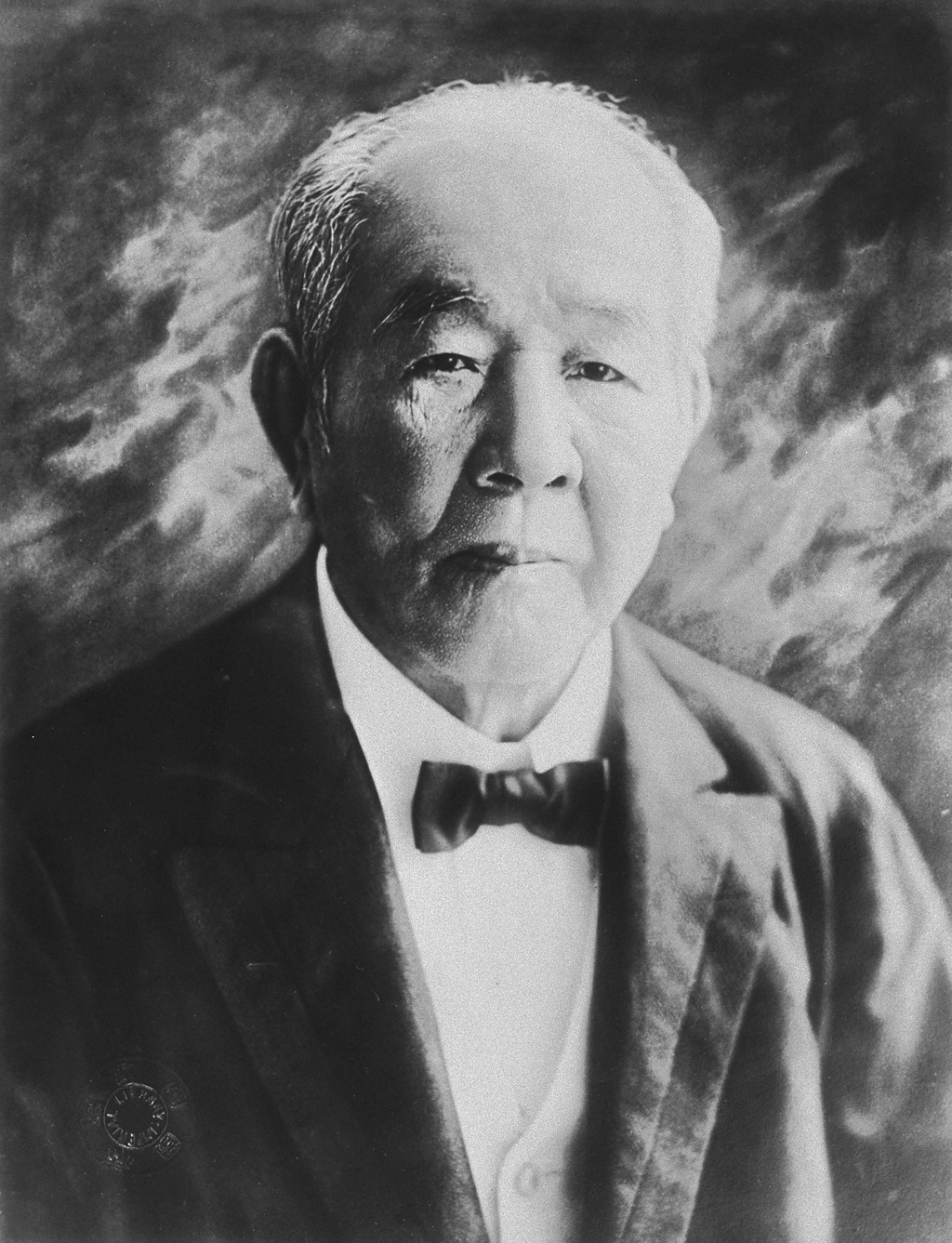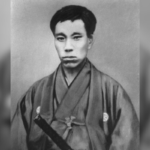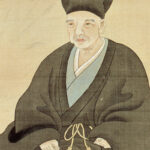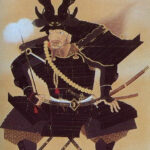

渋沢栄一 SHIBUSAWA Eiichi
1840 – 1931
The Father of Japanese Capitalism
Gentle and Genius Kid
Eiichi Shibusawa was born in Saitama Prefecture in 1840, during the end of the Edo period when samurais with swords were still common. His family was a rich farmer, who also runs an indigo dyeing business. Eiichi had been helping his father from an early age, and he always went to purchase and sell indigo plants by himself. He was a clever kid, who had a sense of business, and was also well educated. At the age of seven, he began to study the famous book (Rongo) written in China. Eiichi was so into this book that he had fallen into a pond while he was walking, reading the book. The book describes the morals of becoming a good person that would strongly influence Eiichi’s kind personality later on.
Whose Side was He On?
Eiichi grew up in a wealthy house but never looked down on the poor or lower-ranked people. On the other hand, he was looked down upon by the upper-class samurai. He had strong anger and doubts about the social system, in which people had to be discriminated against by samurai and collected unfair taxes. Eiichi always thought that the system needed to be changed. And so he learned swordsmanship at a dojo. He made friends there and planned to defeat the Edo Shogunate (the top group in Japan). Eiichi thought that by defeating the Shogunate, this old social system could be abolished. At the time, many foreigners had started to visit Japan. Since the emperor was afraid of foreigners, Eiichi and his friends tried to protect the emperor by expelling foreigners. When Eiichi was 23, he came up with the plan of burning Yokohama, where most foreigners were staying. Although he ended up giving up on this plan because his peers stopped him, he was starting to become feared and was put on the wanted list for he was going to carry this villainous plan out. A year later since he started to run away, Eiichi was helped by Yoshinobu, who would later become the 15th leader of the Shogunate, so he decided to serve under him as a samurai. The irony is very interesting that he once tried to defeat the Shogunate but then he ended up working for them.
Cut a Chonmage Hair Down in Paris
As Eiichi did a great job and gained trust from Yoshinobu, he was promoted to become a retainer, which was a higher-ranked position. At the age of 27, he was sent to France with Yoshinobu’s younger brother to attend the Paris Exposition as a delegation of Japanese authority. Their trip to France took two long months via China, Vietnam, and Singapore. Eiichi visited European countries and was deeply impressed to see their civilizations, such as advanced industries, unique economics, and capitalist society. Eiichi especially learned a lot about the stock system, which allowed the country to run a lot of huge companies and also allowed people to be involved in society. He found a big difference in the stock system from the Japanese system, where only high-ranked people lived wealthy lives, and the poor could not crawl up for the rest of their lives. He changed his kimono into Western clothes and cut his chonmage (Japanese traditional topknot hairstyle) down to blend in. When Eiichi returned from France, the Shogunate had collapsed. The Edo period was over, and a new generation started. It must have been hard for Eiichi that the Tokugawa family, who took care of him well, disappeared, but Eiichi had to start working to realize the brand-new social system that he learned in France.
Launched a First Bank in Japan
Because Eiichi was blessed with all kinds of luck, such as a wealthy family, erudite parents, and the experience of visiting overseas, he was able to accomplish various feats after that. Eiichi was invited by an organization called the Ministry of Finance to work for the nation. There he made systems that are indispensable to our lives now, such as mail, railroads, and money. No matter how many tasks he had to get done, Eiichi had never dumped jobs on his subordinates but showed an attitude of working harder than others. That gathered hard workers around Eiichi, and many businesses succeeded. Eiichi thought that it was most important to close the gap of fellow citizens for the country to grow strong, so he educated his subordinates to give their opinions, even though it was taboo at the time. Eiichi decided to quit his job in the nation at the age of 33 to start working for the private enterprise. He launched the first bank in Japan. This bank is still one of the most famous banks in Japan today, along with him also establishing many regional banks. It was also Eiichi who made the Japanese word “Ginkou (bank).” Without the development of financial institutions that occurred thanks to Eiichi, Japan would not have been on par with foreign countries as an economic powerhouse.
Established 500 Companies
Eiichi had established not only banks but also various companies. They include Kirin Brewery, Sapporo Brewery, Tokyo Gas, Imperial Hotel, and so on. Eiichi was involved in launching more than 500 companies in a wide range of industries between the ages of 33 and 76. What is more, many of them are now large companies that support the current Japanese economy. Therefore, Eiichi is called “the father of Japanese capitalism.” Around 1886, his fame quickly spread among young entrepreneurs, and they started to study Eiichi’s business skills together. This gathering grew to have thousands of members. Eiichi never made a profit by himself. He prioritized the whole nation becoming wealthy, and the country became stronger, rather than him becoming rich.
Involved in 600 CSR Activities
Eiichi was also enthusiastic about CSR (corporate social responsibility) activities. For example, he was the director of a medical center, was involved in the establishment of the Japanese Red Cross Society, collected donations for the reconstruction of the earthquake, and provided facilities to protect orphans, the elderly, and the disabled people. He was also the principal of a commercial school and promoted a women’s school, which was unpopular at the time. His cooperation with educational institutions encouraged women a lot to be active in society. Eiichi had been involved in 600 educational and social projects in his lifetime.
Eiichi’s Policy
He cherished the idea of combining economy and morality. He had a policy that he should focus on the benefit for the country and the people, not monopolize profits by himself. This idea came from the book, Rongo, which he learned at an early age, and his kind-hearted father. Eiichi’s lecture book is still read by many people today including Ohtani, the MLB baseball player.
No Beard No Banknotes
Eiichi, who had been nominated for the Nobel Prize twice, had also been selected many times as a candidate for portrait of Japanese banknotes. Then Why he hadn’t been chosen before? The reason is that he didn’t have a beard! At that time, bearded people tended to be used as the face of the banknote to make it difficult for people to counterfeit because of the complex illustrating. Eiichi’s achievements are more than enough for the face of banknotes but they needed a beard. However, as anti-counterfeiting technology had improved nowadays, they finally decided to put Eiichi’s portrait for 10,000-yen bills from 2024. It is a surprising story that the father of Japanese capitalism finally becomes the face of banknotes nearly 100 years after he died just because he has no beard.
.
.
.




